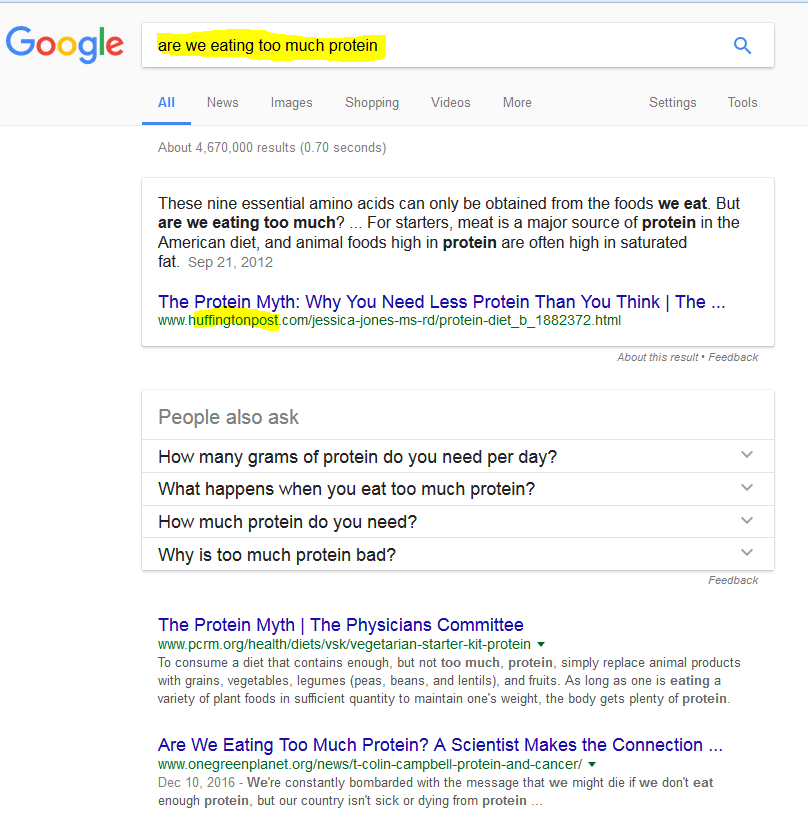Mike Caulfield and Kristin Conlin
Was 9/11 a hoax? Let’s find out. We type in ‘was 9/11 a hoax’ into Google’s search box and we get:

Not only does the top result says that the attack on 9/11 was faked–the top five results do. To the untrained eye it looks like the press has been hiding something from you. But of course the 9/11 attacks were not faked. So why does Google return these results?
The main reason is the terms used to search the topic. The term “hoax” is applied to the 9/11 attacks primarily on conspiracy sites. So when Google looks for clusters on that term (and links to documents containing that term), it finds that conspiracy sites rank highly.
Think about it: reputable physics journals, policy magazines, and national newspapers are not likely to run headlines asking if the attacks were a hoax, but conspiracy sites use the term liberally.
The same holds true even for more benign searches. The question, “Are we eating too much protein” has Google return a panel from the Huffington Post (now HuffPost) and a website from a vegan advocacy group.

To avoid confirmation bias:
- Avoid asking questions that imply a certain answer. If you ask, “Did the Holocaust happen?,” for example, it is implied that the Holocaust was faked. If you want information on the Holocaust, sometimes it’s better just to start with a simple noun search, e.g. “Holocaust,” and read summaries that show how we know what happened.
- Avoid using terms that imply a certain answer. As an example, if you query, “Women 72 cents on the dollar” you’ll likely get articles that tell you women make 72 cents on the dollar. But is you search for “Women 80 cents on the dollar” you’ll get articles that say women make 80 cents on the dollar. Searching for general articles on the “wage gap” might be a better choice.
- Avoid culturally loaded terms. As an example, the term “black-on-white crime” is term used by white supremacist groups, but is not a term generally used by sociologists, nor do statistics support this claim. As such, if you put that term into the Google search bar, you are going to get some sites that will carry the perspective of white supremacist sites, and be lousy sources of serious sociological analysis.
* If you don’t know if a term or phrase is culturally loaded, pay special attention to and practice the following two steps:- Think carefully about what constitutes an authoritative source before you search. Use that criteria to assess your search results. Then, once you acquire search results, use lateral reading techniques to assess the sources you chose to pursue/click on.
- Scan results for better terms. Maybe your first question about whether the holocaust happened turned up a lousy result set in general but did pop up a Wikipedia article on Holocaust denialism. Use that term (in this case, “denialism”) to make a better search for what you actually want to know.
